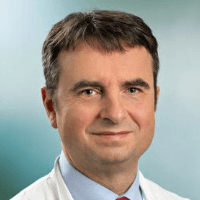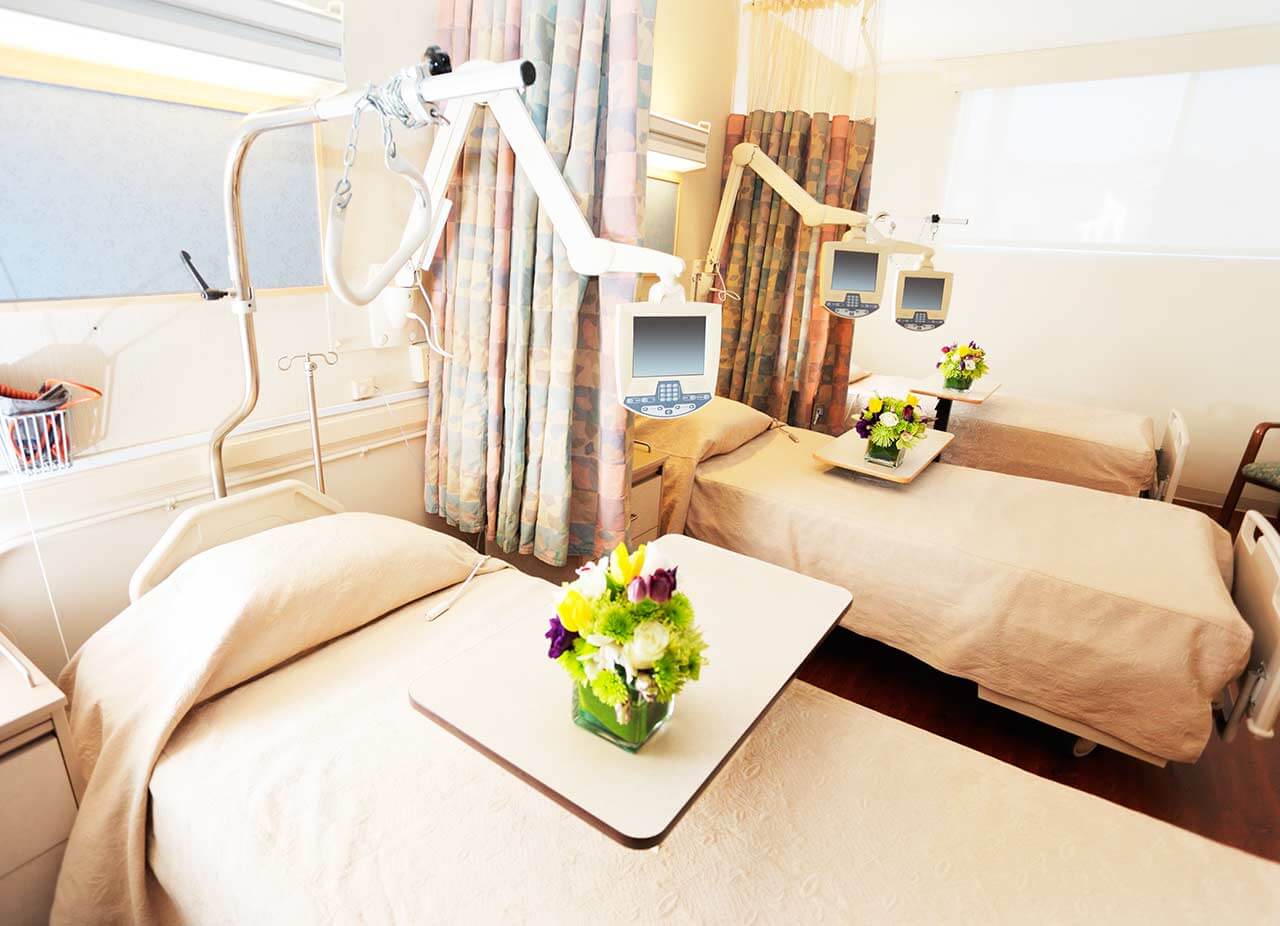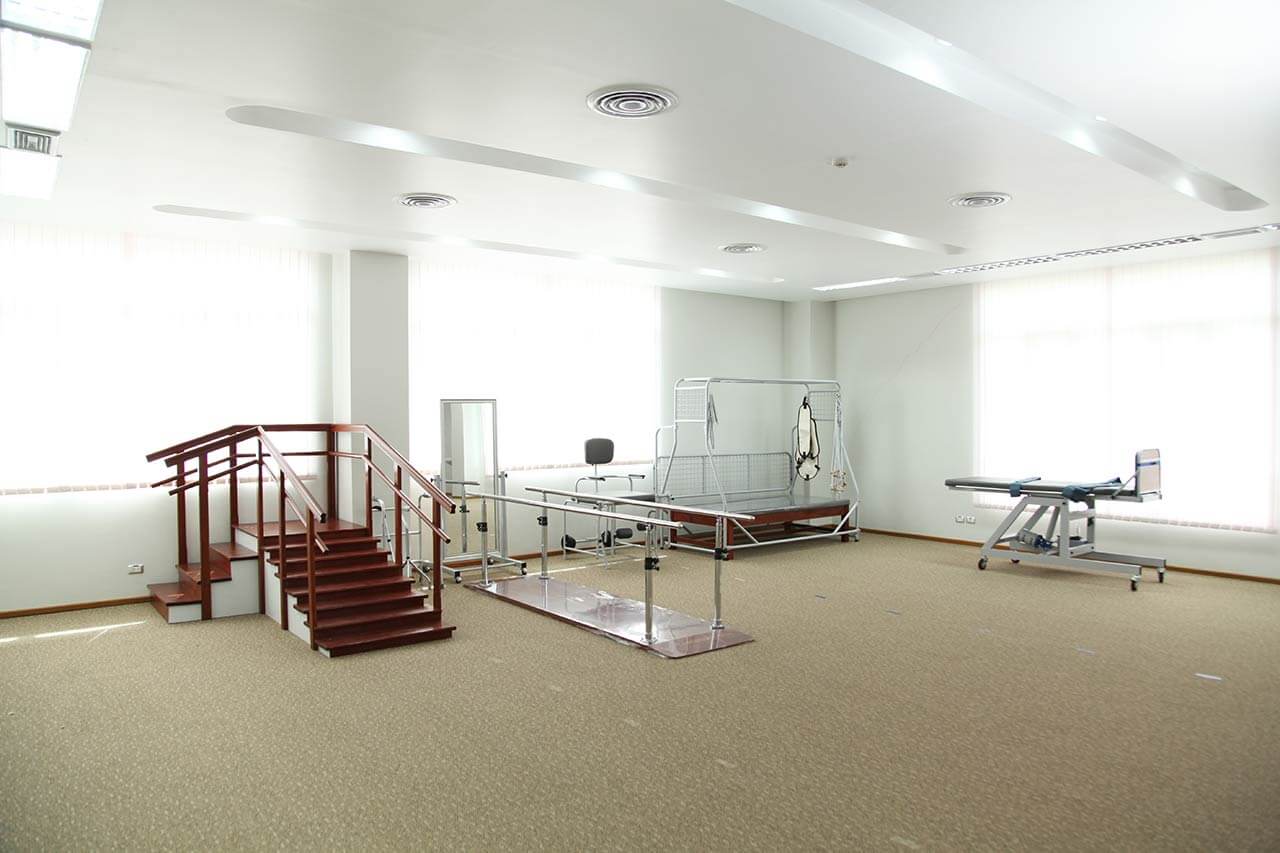
About the Department of Neurology and Neurological Rehabilitation at Asklepios Neurological Hospital Falkenstein
The Department of Neurology and Neurological Rehabilitation at the Asklepios Neurological Hospital Falkenstein offers the full range of services in these medical fields. It offers both inpatient and outpatient treatment. The main activities cover the diagnosis, treatment and rehabilitation of patients with stroke, polyneuropathy, multiple sclerosis, Parkinson's disease and epilepsy. The department is headed by Prof. Dr. med. Karsten Krakow.
The key to successful treatment is an accurate diagnosis. To provide it, the department is equipped with the state-of-the-art medical equipment. Here are used all the classical and innovative methods of neurological diagnosis, with the help of which specialists can identify the causes of the development of the disease and risk factors, for example, electrophysiological tests are conducted to identify and predict the course of neurological pathologies. When conducting diagnostics, a huge role is played by the clinical experience and scientific competence of the department’s medical team.
The diagnostic options of the department include:
- Digital electroencephalography (EEG)
- Evoked potentials
- Doppler and duplex sonography
- Echocardiography
- Electromyography / electromyoneurography
- ECG/24-hour ECG monitoring
- 24-hour blood pressure measurement
- Polysomnography
- Video endoscopy
- And other examinations
One of the most important focuses of the department is the treatment and rehabilitation after a stroke. In this pathological condition, of crucial importance is rapid diagnosis (CT and MRI of the head) to differentiate the type of stroke and extent of lesion, to take optimal therapeutic measures. In most cases, patients after a stroke require targeted neurological rehabilitation, which can significantly improve the symptoms of the disease. It goes without saying that only an individual approach is applied here, in which the patient is prescribed an optimal rehabilitation program combining all the necessary medical procedures. The duration of rehabilitation depends on the severity of the symptoms and the tendency of their regression (usually from three weeks to several months).
To date, multiple sclerosis, Parkinson's disease and epilepsy are incurable diseases, but in the arsenal of the department there are many methods for preventing the progression of diseases and, consequently, improving the patient’s quality of life. These include various medicines, techniques of physiotherapy, occupational therapy, speech therapy, neuropsychology, etc.
The treatment of polyneuropathy depends on the cause of its occurrence. Infectious polyneuropathies are often treated with antibiotics. In diabetic polyneuropathy, the crucial factor is an optimal control of blood glucose levels. If caused by vitamin deficiency, the solution for polyneuropathy is to introduce a high dose of vitamin B into the body, for example, vitamin B 12. In nerve inflammation, anti-inflammatory drugs are used, while immunoglobulin infusion or plasmapheresis can be used to treat Guillain-Barre syndrome. If, in neuropathy, the patient suffers from pain or gait abnormalities, it is necessary to provide high-quality physiotherapy.
The service range of the department includes:
- Physiotherapy
- Bobath therapy
- Vojta therapy
- Proprioceptive neuromuscular facilitation
- Individual therapy in the therapeutic pool according to the Halliwick method
- Manual therapy
- Training on the treadmill
- Robot-assisted therapy (ReWalk training for restoring walking, training on the Armeo stimulator for restoring hand mobility)
- Treatment with a plaster bandage/splint
- Kinesiotherapy
- Functional electrical stimulation
- Consultations on ActiGait therapy
- Intensive training for restoring walking
- Medical training therapy
- Consultations on the use of auxiliary devices
- Group therapy
- Manual lymph drainage and compression therapy
- Classical massage and thermal therapy
- Electrotherapy
- Inhalation
- Respiratory therapy
- Magnet therapy
- And other treatment options
- Neurophysiology
- Correction of diplopia (double vision) with the help of lenses
- Compensation for visual field defects
- Treatment of orientation disorders
- Treatment of short-term and long-term memory disorders
- Treatment of attention deficit disorder
- Treatment of impaired cognitive functions (for example, planning)
- Treatment of will disorders
- Consultations on problems with understanding the psychological causes of the disease
- Consultations on addiction problems
- And other services
- Ergotherapy
- Sensorimotor perceptual therapy
- Treatment of impaired motor functions
- Restoration of gross and fine motor skills
- Restoration of sensitivity and perception
- Training in the use of auxiliary devices
- Restoration of cognitive functions
- Restoration of neuropsychological functions
- Treatment of dysphagia
- Other services
- Logotherapy
- Diagnosis and treatment of aphasia, acalculia, dysarthrophonia, dysphagia and other diseases
- Early neurological rehabilitation (phase B)
- Consultations on nutrition
- And other medical services
Curriculum vitae
- 2003 Medical Specialist in Neurology.
- Since 2007 Chief Physician of the Asklepios Neurological Hospital Falkenstein.
- Acting Head of the Department of Neurology, University Hospital Frankfurt.
- 2005 - 2007 Senior Physician of the Department of Neurology, University Hospital Frankfurt.
Additional Qualifications
- Sleep medicine.
- Epileptology plus Certificate (Zertifikat Epileptologie plus).
Internship
- 1995 - 1997 Department of Neurology, University Hospital Mannheim at the Heidelberg University.
Education
- 2006 PhD, University of London.
- 1997 Doctor’s degree.
Membership in Medical Societies
- Since 2005 Member of the Working Group on Epilepsy.
- Since 1995 Member of the German Society of Epileptology.
- Since 2003 Member of the German Society for Clinical Neurophysiology.
- Since 1996 Member of the German Society of Neurology.
- Since 2004 Member of the German Society for Sleep Research and Sleep Medicine.
Photo of the doctor: (c) Asklepios Neurologische Klinik Falkenstein




